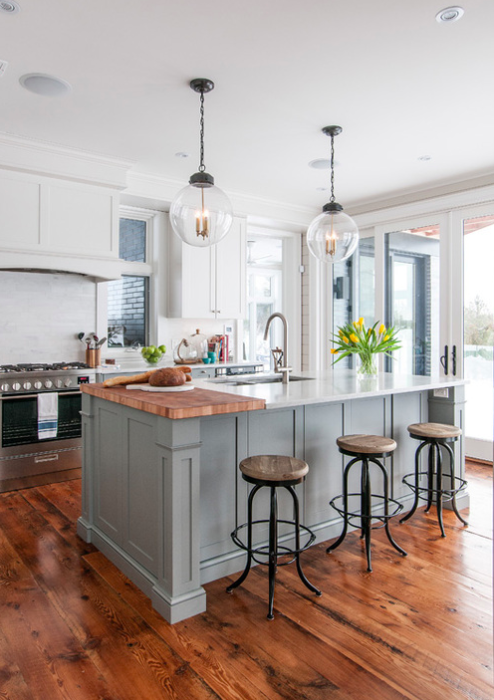Develop a Spectacular Prime Focus with Elegant Legs For Kitchen Island
Develop a Spectacular Prime Focus with Elegant Legs For Kitchen Island
Blog Article
A Guide to Picking the Perfect Legs For Cooking Area Island for Your Home
Choosing the optimal legs for your kitchen area island is a nuanced decision that influences both the capability and visual allure of this central room. Aspects such as height, products, and style play an important duty in harmonizing your island with the general kitchen style. Additionally, understanding the relevance of security and maintenance can considerably affect your choice. As you think about these aspects, it becomes obvious that the right legs can change not only the look of your kitchen but additionally its functionality for years to come. What specific attributes should you focus on in this option process?

Understanding Kitchen Area Island Legs
When picking legs for a kitchen area island, it's vital to comprehend their useful and aesthetic roles in the overall layout. The legs work as an important support group, making sure stability and sturdiness for the island, which typically operates as a work area, dining area, or gathering place. The choice of material and building and construction technique need to be durable sufficient to hold up against daily use and potential wear.
In addition to their architectural obligations, legs add substantially to the island's aesthetic allure. They can boost the cooking area's design, whether via conventional, contemporary, or diverse layouts. The elevation and percentage of the legs are also crucial factors to consider; they should integrate with the island's countertop elevation while guaranteeing comfortable seating for those utilizing the room.
Furthermore, the leg layout can affect the total flow of the kitchen area. Open, ventilated leg designs can develop a feeling of agility, while solid, considerable legs may share a much more grounded and secure visual - Legs For Kitchen Island. Comprehending these practical and aesthetic elements will certainly direct homeowners in making educated choices that complement their kitchen's design and boost its usability
Popular Styles and Products
The option of legs for a cooking area island encompasses a variety of popular designs and materials, each offering unique qualities that can improve both performance and aesthetics. Among the most popular designs are contemporary, rustic, and traditional. Contemporary legs usually include smooth, minimal layouts that highlight simplicity and clean lines, making them excellent for modern kitchens. Rustic styles, on the various other hand, welcome natural environments and commonly showcase recovered wood or troubled surfaces, adding warmth and charm to the area. Standard legs commonly display luxuriant details and craftsmanship, improving classic cooking area layouts.

Elevation and Security Factors To Consider

Security is an additional vital consideration. The legs of the kitchen area island should give sufficient assistance, making certain that the structure can endure day-to-day use without changing or wobbling. Material choice plays a significant role in stability; steel legs, for example, have a tendency to offer better toughness compared to wood. Additionally, ensuring that the island is safely anchored to the floor or wall surface can improve stability, specifically for larger islands that might bear substantial weight.
Matching Your Kitchen Area Visual
Picking the ideal legs for your kitchen island exceeds functionality; it likewise plays a considerable role in the general visual of the area. When choosing important site legs, consider the layout style of your cooking area. For a contemporary look, sleek metal or minimal layouts can produce a clean, modern-day ambiance. On the various other hand, conventional or rustic kitchens typically benefit from wooden legs with elaborate outlining or a distressed surface, boosting heat and personality.
Legs that enhance or comparison with your island's surface and surrounding cabinets can produce aesthetic consistency or striking focal factors. In addition, think about the coating of the legs; matte, glossy, or distinctive surfaces can substantially affect the total feeling of the cooking area.
Installment and Upkeep Tips
Mounting kitchen area island legs requires mindful focus to detail to make certain both security and visual allure. Use a stud finder to situate wall studs if you are attaching the legs to a wall surface or making use of brackets for included assistance.
When securing the legs, utilize high-grade screws and, if necessary, timber recommended you read adhesive for extra strength. For steel legs, make certain that you are utilizing suitable supports and devices to stop damage to your flooring. It is a good idea to inspect for levelness after installation, making adjustments as needed to stay clear of tottering.
Clean the legs with an appropriate cleaner, avoiding abrasive products that might scrape the surface. By complying with these setup and maintenance pointers, you can make sure that your cooking area island legs stay both Home Page useful and aesthetically attractive.
Final Thought
In verdict, selecting the appropriate legs for a kitchen area island requires careful consideration of height, stability, and visual compatibility. Ultimately, thoughtful leg option plays a critical role in elevating both the usefulness and style of the kitchen room.
When picking legs for a cooking area island, it's essential to recognize their visual and useful roles in the general style. Open, airy leg designs can develop a sense of agility, while strong, significant legs may communicate a much more grounded and secure aesthetic. The legs of the cooking area island ought to supply appropriate assistance, making certain that the framework can stand up to day-to-day use without wobbling or shifting.Setting up cooking area island legs requires cautious attention to detail to make sure both stability and visual appeal.In final thought, choosing the suitable legs for a kitchen area island requires cautious factor to consider of height, stability, and aesthetic compatibility.
Report this page